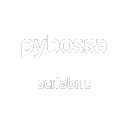Unlocking New Discoveries: Best Quantum Moves Alternatives for Citizen Science
Quantum Moves, an innovative game from the scienceathome.org initiative, allowed everyday users to contribute to cutting-edge quantum physics research by simulating laser movements to guide atoms. Born from the Aarhus University's ambitious project to build a quantum computer, it demonstrated the powerful potential of human intuition in solving complex scientific challenges. While Quantum Moves offered a unique gateway into the world of quantum computing, the realm of citizen science is vast and ever-expanding. If you're looking for other ways to lend your computing power or human brainpower to scientific breakthroughs, exploring a Quantum Moves alternative can open up a world of new possibilities.
Top Quantum Moves Alternatives
Whether you're interested in disease research, distributed computing, or simply playing games that contribute to science, there's a fantastic alternative out there for you. Here are some of the leading platforms and projects that allow you to make a real-world impact.

BOINC
BOINC (Berkeley Open Infrastructure for Network Computing) is a powerful and flexible platform for volunteer computing and desktop grids. As a free, open-source solution available on Mac, Windows, Linux, and Android, it serves as an excellent Quantum Moves alternative for those interested in contributing their computer's idle processing power to a wide range of scientific projects, from climate modeling to medical research. Its features include distributed computing, a strong community, peer-to-peer capabilities, and scientific data analysis, making it a robust choice for various research endeavors.

Foldit
Foldit is an experimental video game focused on protein folding, developed by the University of Washington. Similar to Quantum Moves in its game-based approach to science, Foldit allows players to manipulate virtual proteins to find the most stable structures, which has direct implications for understanding diseases and designing new medicines. It's a free game available on Mac, Windows, and Linux, offering a unique blend of gaming and puzzle-solving for scientific research.

Folding@home
Folding@home is a widely recognized collaborative effort that uses a network of individual computers to combat diseases through data-crunching research. Like Quantum Moves, it harnesses distributed computing, but its focus is on protein folding simulations crucial for understanding illnesses like Alzheimer's, Parkinson's, and various cancers. It's a free platform available on Mac, Windows, Linux, and Docker, making it a highly accessible and impactful Quantum Moves alternative for those dedicated to medical breakthroughs.

Zooniverse
Zooniverse is the internet's largest and most popular platform for citizen science projects, making it an excellent Quantum Moves alternative for those who prefer web-based contributions. It hosts a diverse range of projects where volunteers analyze real research data – from classifying galaxies to transcribing historical documents and identifying animal species. It's a free, crowd-sourced platform with a strong emphasis on distributed computing, offering a wide array of engaging opportunities to contribute to science.

CryptoBullions Folding Pool
The CryptoBullions Folding Pool is an official Folding Pool for CureCoin, allowing Folding@Home users to earn cryptocurrency for their scientific contributions. This open-source, web-based platform is a unique Quantum Moves alternative for those interested in blending citizen science with blockchain technology. Users on Team CureCoin can sign up to contribute their computing power to protein folding research while potentially earning digital currency.

Phylo
Phylo, while appearing to be just a game, is a powerful framework that harnesses human computing power for solving multiple sequence alignment problems in genetics. Similar to Quantum Moves' game-based approach, Phylo makes complex scientific tasks accessible and engaging. This free, web-based platform offers a crowd-sourced and distributed computing environment, ideal for those who enjoy gaming while contributing to significant biological research.

HFM-NET
HFM-NET is a dedicated client monitoring application for Folding@Home. While not a direct scientific contribution platform itself, this free, open-source Windows application is a valuable tool for those engaged in distributed computing through Folding@Home. It allows users to effectively manage and monitor their contributions to the crowd-sourced scientific effort, ensuring their computing power is optimally utilized for research, making it a complementary Quantum Moves alternative for dedicated Folding@Home participants.

pybossa
PYBOSSA is an ultimate open-source crowdsourcing framework designed to analyze or enrich data that machines alone cannot process. Available as a free, web-based, and self-hosted solution, PYBOSSA empowers organizations and individuals to create their own citizen science projects. As a robust Quantum Moves alternative, it provides the tools for building custom crowd-sourced initiatives, allowing for flexibility in tackling diverse scientific and data-analysis challenges.
The world of citizen science is rich with opportunities to contribute to groundbreaking research. Whether you're drawn to the competitive gaming aspect of projects like Foldit, the broad impact of distributed computing networks like BOINC and Folding@home, or the diverse projects on Zooniverse, there's a perfect fit for your interests and computing resources. Explore these Quantum Moves alternatives today and help push the boundaries of scientific discovery!